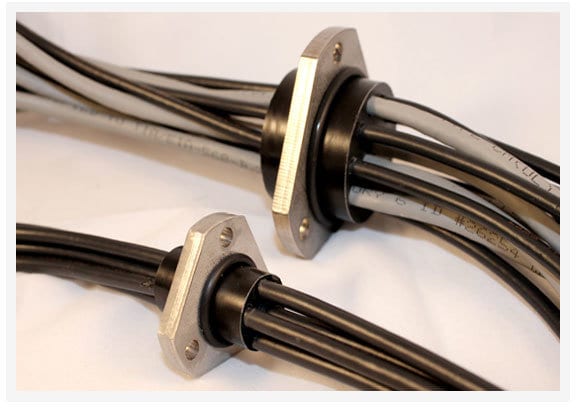What Is Boat Builders Insurance?
“What is Boat Builders Insurance?” I was asked at a networking event recently. Well of course the obvious response would be a rather glib “Insurance for people that build boats” but, thankfully,I took a little time to pause before answering as the answer is, perhaps, not quite as straightforward as one might think.
First of all, we have to ask ourselves “What is a boat builder?” This is important because there are a lot of marine businesses who include that activity in their business description but repair boats rather than actually build them. Similarly there are people who build boats but do not describe themselves as boat builders. For example a shipwright may build or repair vessels – these could either be leisure-craft – what we would normally term a boat – or a larger commercial vessel which we would describe as a ship. We can also add to the mix those craftsmen who restore boats rather than build them from scratch as well as those individuals or businesses that will “fit-out” a shell of a vessel, either for their own use or as part of their commercial activities.
So, Boat Builders Insurance is a specific insurance solution that may form part of a larger insurance programme for individuals or businesses that conduct one or more of the following activities but may not necessarily describe themselves as a boat builder:
• Manufacture or building of leisure-craft and/or some commercial vessels.
• Restoration of vessels such as classic or historic craft.
• Refitting of leisure-craft.
• Boat fit-out.
Whichever of those activities listed above are being conducted the structure of the Boat Builders Insurance solution is a standard format. It will provide specialised cover for physical damage and for third party liability. Let’s have a look at the elements of what the Market terms Builders Risks in turn:
Physical Damage:
Insurance policy wordings will obviously vary from insurer to insurer and should be checked for the precise scope of cover, conditions and exclusions. However, broadly speaking a Boat Builders Insurance Policy will provide “All Risks” cover in respect of physical loss or damage to vessels under construction including hulls and machinery, gear and equipment. It may also, depending on the policy wording, cover any associated moulds and moulding tools. Other cover provided under the Physical Damage part of the cover may include specialised provision for costs such as:
• Repairing or replacing any defective part that is condemned due to discovery of a latent defect during the boat’s construction. Faulty welds, however, would more than likely be excluded.
• The costs of completing the launch of the insured vessel under construction following the failure of a launching operation and the cost of inspecting the bottom of the vessel after a grounding if reasonably incurred specifically for that purpose.
• Loss of or damage to the boat in build due to faulty design of any part or parts of the vessel and the cost of salvage of the boat in build reasonably incurred in preventing or minimising any loss that may be recoverable under the Boat Builders Insurance.
• Loss of or damage to the vessel whilst in transit between the build location and a launch point for sea trials.
The insured values of the vessels under construction will normally be based on the total value of vessels in build at any one time (work in progress if you like) and the maximum value of any single vessel in build.
This would normally be the completion value – i.e. the build or restoration cost – and not the sale value. However, in some cases a boat builder may require payment in instalments at various stages of a build by the beneficial owner of the vessel. Where this happens the sum insured may reflect the payments made by the beneficial owner and, towards the end of the build, will possibly mean the sum insured is higher than the build cost as the interest of the owner should be noted on the policy schedule and certificate.
On higher value builds and refits it may be possible to structure the sum insured (and therefore the premium) around the cost/value of the build at various stages. I arranged cover for one superyacht builder where an initial premium down-payment was made followed by additional premium instalments which were levied at periodical value declarations by the builder.
Third Party Liability:
This part of the cover should cover the legal liabilities of the owner of the boat in build arising from physical loss or damage to third party property and/or death or bodily injuries to third parties whilst the vessel is afloat for the purposes of being worked upon or while underway on sea trials. It should also cover any reasonable costs incurred in removing and disposing of the wreck of the vessel or any neglect or failure to raise or remove the wreck. The limit of indemnity for Third Party Liability will usually be a minimum of £3,000,000 but where higher value vessels are the subject of the insurance then more appropriate indemnity limits should be sourced.
Stand-Alone or Combined Solution?
Individuals who are restoring or fitting-out their own leisure-craft can obtain Builders Risk insurance by way of some leisure-craft insurance policies. Cover would include hull and machinery to an agreed completion value and third party liability too. Individuals should seek advice as to any Employers Liability Insurance requirements that may arise in the event of any work being carried out by subcontractors or volunteers.
Commercial ventures, charities and trusts can include their Builders Risk cover on a combined Marine Trade Insurance policy where cover for their Property, Business Interruption, Public, Products and Employers Liability Insurances could also be placed. Stand-alone options are also available and it is advisable for boat builders to seek advice from a specialist Marine Trades Insurance broker to ensure their insurance programme is correctly aligned to the needs and goals of the business.








